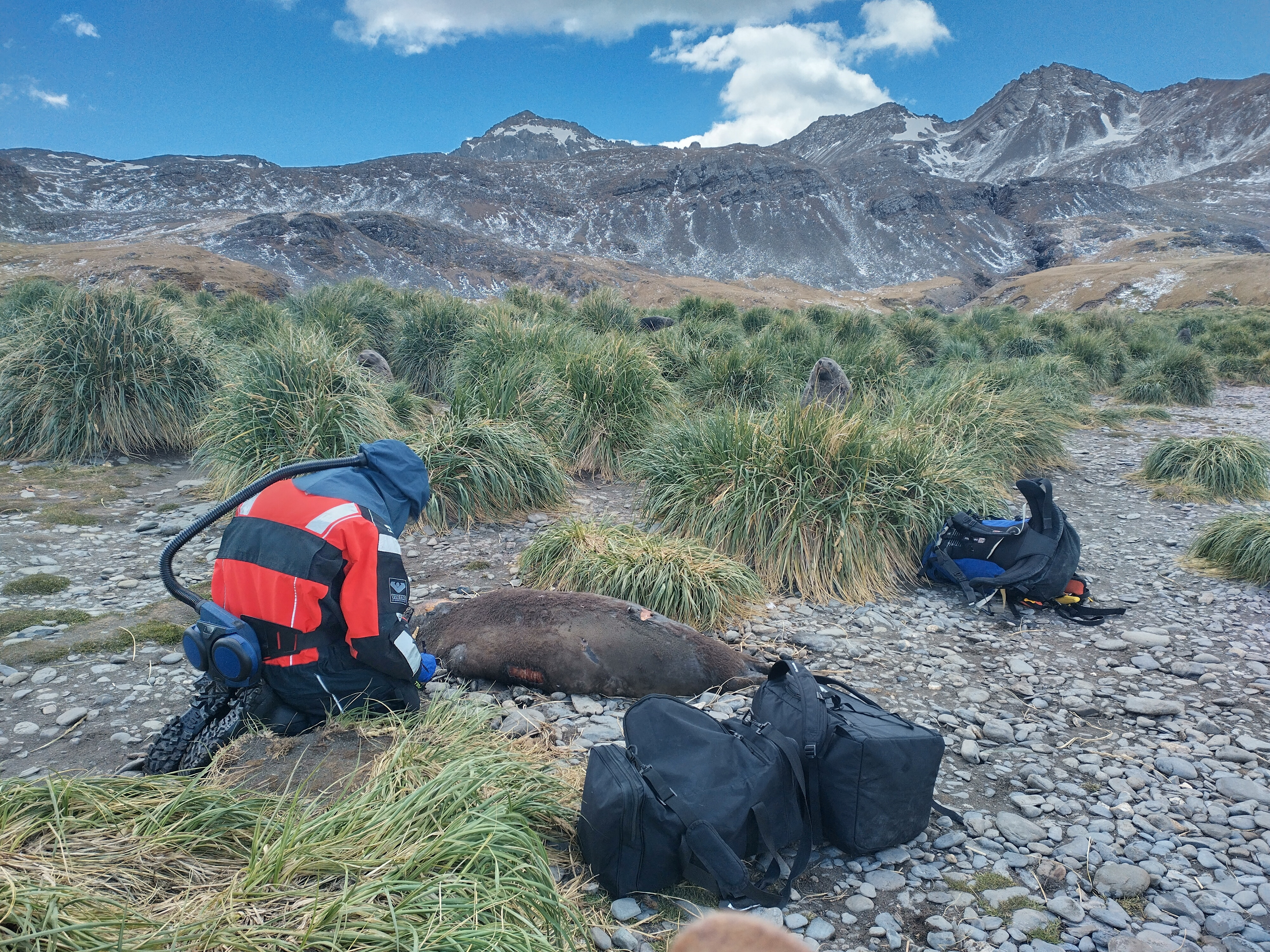Bird flu found in mammals near Antarctica for the first time, scientists say
[1/2]A scientist tests a dead seal on South Georgia Island in the South Atlantic Ocean for avian influenza, a disease which has already killed millions of birds worldwide in recent years and is now present in wildlife living near Antarctica, December 2023. Dr. Marco Falchieri, APHA/Handout via... Purchase Licensing Rights
Jan 11 (Reuters) - Bird flu has made its way into fur and elephant seal populations for the first time on the sub-Antarctic island of South Georgia, a team of scientists confirmed on Thursday, setting off alarm bells for conservationists as the highly contagious disease has already killed millions of birds worldwide.
Scientists first suspected the presence of avian influenza near Antarctica in October 2023, following the death of several brown skua seabirds on Bird Island, part of the British Overseas Territory of South Georgia and the South Sandwich Islands.
Then, elephant seals started dying en masse.
In December, scientists with Britain's Animal and Plant Health and Agency (APHA) and the British Antarctic Survey (BAS) spent three weeks in the affected islands, collecting samples from dead mammals and birds.
Those samples tested positive for bird flu (HPAI H5N1) in elephant seals, fur seals, brown skuas, kelp gulls and Antarctic terns, scientists said Thursday.
“Given Antarctica is such a unique and special biodiversity hotspot it is sad and concerning to see the disease spread to mammals in the region," said APHA scientific services director Ian Brown.
The current worldwide outbreak of H5N1, which began in 2021, has killed millions of birds on poultry farms, and scientists fear its impact on Antarctic wildlife could be devastating. The virus has the potential to infect 48 species of birds and 26 species of marine mammals, according to a report published last month by OFFLU, a global network of animal influenza experts.
The analyzed samples indicated migratory birds from South America had likely introduced the virus to South Georgia.
"Seals, that are known to scavenge, may become infected when they consume infected bird carcasses," said ecologist Alastair Ward at the University of Leeds.
Thousands of seals and hundreds of thousands of birds congregate in dense colonies in Antarctica which could allow the virus to easily jump between individuals, resulting in high mortality, OFFLU said.
Penguins — Antarctica's most iconic animals — do not yet appear to be impacted by the virus, with no reports showing above-average penguin mortality.
BAS which operates two research stations on South Georgia has mostly suspended scientific fieldwork involving human contact with animals following the confirmed cases. The International Association of Antarctica Tour Operators has also instructed boats not to land at some sites on South Georgia and the Antarctic Peninsula, out of caution.
Fueling global concern about the virus' spread to imperiled wildlife populations, Alaskan officials confirmed last week the first known case of a polar bear dying of H5N1.
"If a bird is weakened by avian influenza, or succumbs to it, polar bears aren't fussy about what eat," Andrew Derocher, a polar bear biologist at the University of Alberta, told Reuters. "If it's dead and it's edible they'll probably eat it. There is a high likelihood of an interaction between climate change, avian influenza, bird mortality and polar bears."
Sign up here.
Reporting by Gloria Dickie; Editing by Aurora Ellis
Our Standards: The Thomson Reuters Trust Principles.

